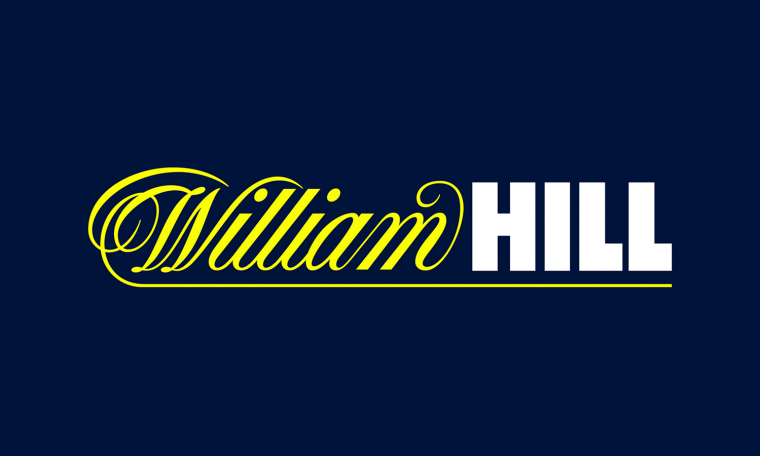Behind every Grand National Steeple Chase champion is a trainer whose expertise, dedication, and strategy have prepared the horse for one of the most grueling tests in the world of horse racing.
The Aintree Grand National, with its storied history and demanding course, has been the proving ground for trainers who have become legends in their own right.
We celebrate the most famous trainers in the history of the Grand National, delving into their their triumphs and the lasting impact they have had on this iconic race.
Vincent O’Brien
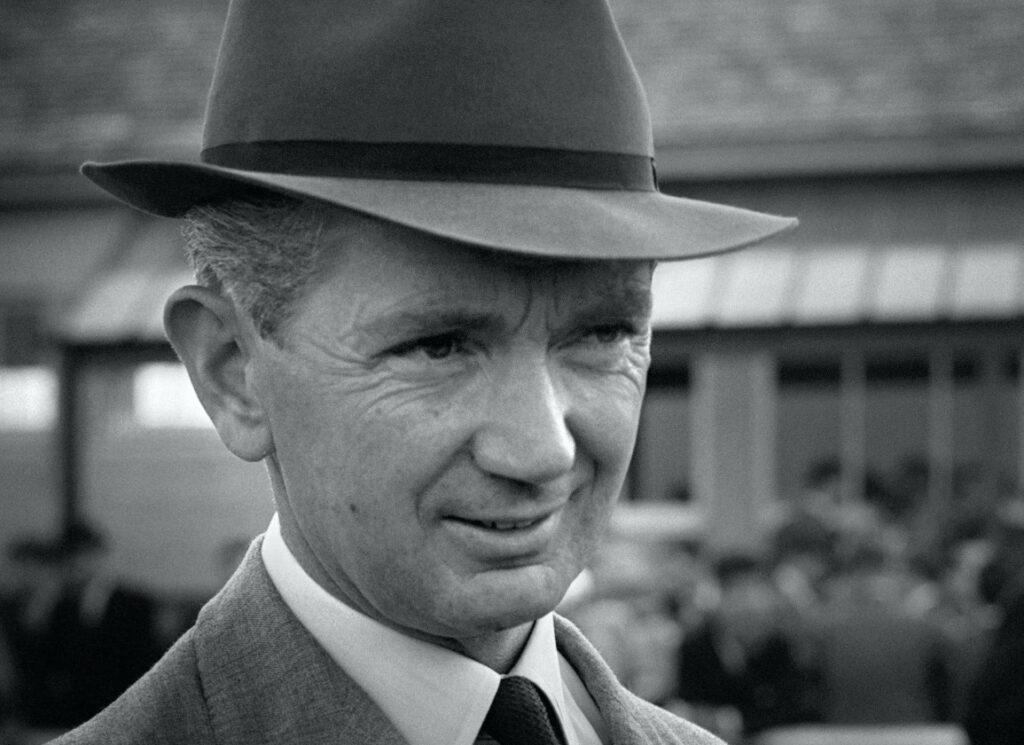
Vincent O’Brien, also known as the “Master of Ballydoyle”, is a genuine Grand National legend and the most successful trainer ever to emerge from Ireland.
O’Brien’s father was a successful national hunt horse trainer in Ireland who won a number of prestigious races, including the Champions hurdle at Cheltenham during his career. Brought up amongst champion horses, young Vincent was always destined to follow in his father footsteps.
Vincent O’Brien received his own training license during the 1944/1945 season and had an immediate impact on hunt racing. Within his first five years as a professional trainer O’Brien chalked up a series of remarkable victories, including winning three Cheltenham Gold Cups and the King George VI Chase.
Within the first decade of his career as a trainer, Vincent O’Brien achieved a feat that may never be equalled. In 1953 racehorse Early Mist was entered into the Grand National at 20/1 odds, and won the trainer his first race. O’Brien was back at Aintree the following year with a new horse, Royal Tan, who duly obliged his trainer with a second Grand National victory.
1955 saw Vincent O’Brien, Grand National legend, achieve the unthinkable. Quare Times was entered into the Grand National as a 100/9 outsider and ran a sensational race to hand O’Brien his third consecutive Grand National victory. What makes this Grand National legend’s hat-trick even more impressive is that it came on the back of an Irish Grand National title in 1952 with Irish racehorse Alberoni.
Following his spectacular success in National Hunt racing, Vincent O’Brien turned his attention to flat racing and continued to achieve on level turf, winning the Epsom Derby, the King George VI and the Queen Elizabeth Diamond Stakes at Ascot. O’Brien also took his horses to America and won several prestigious titles in the United States.
In the 1970s Vincent O’Brien set up the Coolmore Syndicate with his son-on-law, and owner Robert Sangster. Within a few years the Coolmore breeding program had become the most successful in the world, and the quality of horses bred, along with O’Brien’s legendary training skills, produced a series of champion racehorses.
Vincent O’Brien retired in 1994 with two Champion Trainer titles. Fittingly he did so following a win by his horse Mysterious Ways at Curragh. He has since passed his duties at the Coolmore Stud farms to his son Aidan, who has ably continued his father’s unsurpassed tradition of rearing champion racehorses.
Martin Pipe
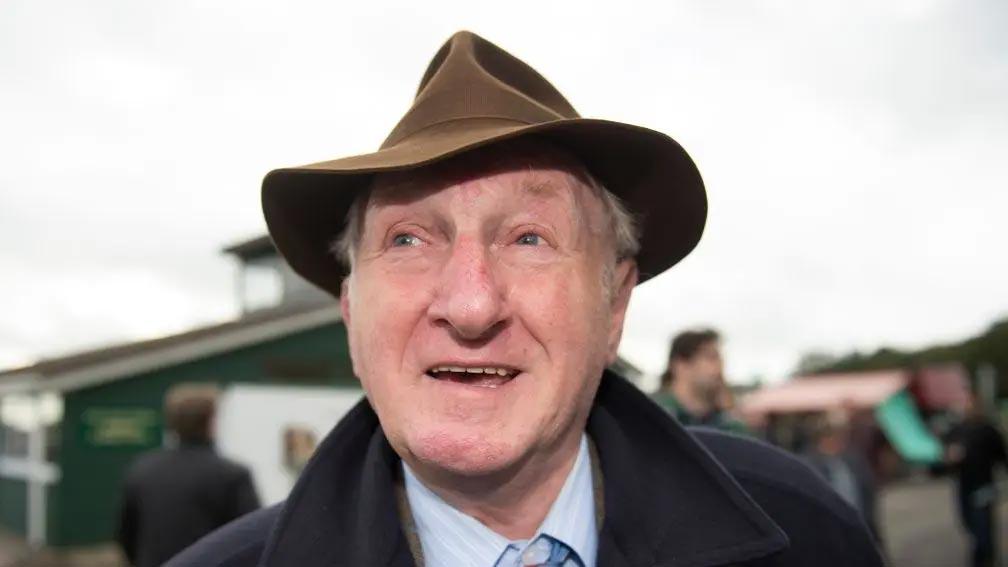
Martin Pipe is one of the most successful national hunt horse trainers in the history of the sport. Pipe’s father, David Pipe, was a book-keeper and in his youth Pipe was educated to follow in his father’s footsteps. At this age he already had an interest in book-keeping and hoped to become a ‘turf accountant’.
Martin Pipe first entered the world of horseracing as an amateur jockey, but was forced out of the sport in 1972 when he broke his thigh. Unwilling to abandon horseracing, Martin Pipe turned his attention to training. In 1975 Hit Parade became Pipe’s first winner at a selling hurdle at Taunton. In 1977 Pipe applied for and received his trainer’s license.
For more than a decade Martin Pipe met with little success as a trainer, and spent this period refining his revolutionary approach to horse training. Pipe believed that horse training would benefit from scientific methods, and that traditional methods of horse racing were more often than not detrimental to the performance of horses.
Pipe subjected his horses to rigourous fitness training and stamina building exercises, as well as frequent veterinary checkups that ensured his horses always gave their best on race day. He also dropped the prejudiced attitude of many trainers to smaller less prestigious events, and built up his impressive record with hundreds of wins at these races.
Pipe also made sure not to overspecialise as a trainer, and depending on a horses’ capabilities would train for either flat or national hunt racing. His first major victory came at the Triumph Hurdle at the 1981 Cheltenham Festival, where his outsider Baron Blakeney handed outright favourite Broadsword a sensational defeat. From that moment on Martin Pipe proved to be unstoppable.
In the next two decades Martin Pipe, Grand National legend, developed into the most feted trainer in horseracing. His horses won six times at the Royal Ascot, 32 times at the Cheltenham festival as well as the Champion Hurdle, Doncaster Cup and the Northumberland Plate.
Martin Pipe captured the most elusive prize in horseracing when Grand National legend Richard Dunwoody rode Miinnehoma to victory in the 1994 Grand National. Martin Pipe announced his retirement in 2006, and left his training yard to his son David Pipe.
In a remarkable career Martin Pipe, Grand National legend, won the title of Champion Trainer 15 times and trained hundreds of race-winning horses.
Ginger McCain
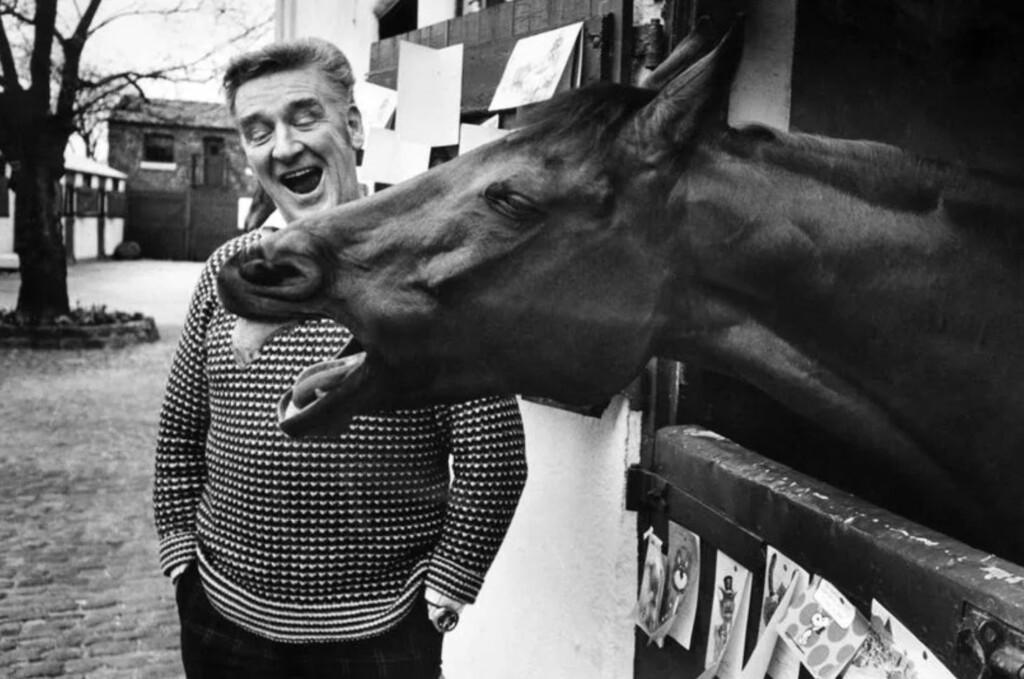
Ginger McCain is one of only two trainers to have achieved four Grand National titles. McCain’s reputation was built largely at the Grand National and specifically on the achievements of the Grand National champion, Red Rum.
It is fitting that Ginger McCain’s first sporting memories are of watching the Grand National at Aintree when he was 10 years old. The young McCain saw little from his position in a barge on the canal, but was impressed by the rush of the horses as they leapt over the high gorse fences.
Ginger McCain, Grand National legend, started riding racehorses at the age of 14, and at the same time played football and race motorcycles. After school McCain took a job as a taxi driver, a job which once required him to drive Frank Sinatra to Blackpool in search of a hairbrush.
Despite the demands of working as a taxi driver, Ginger McCain did not abandon his love for horseracing. He opened a small stable behind a used car dealership and used the beaches of Southport to train his horses.
Ginger McCain was 35 when he got his hands on his first winner, the 14-year-old San Lorenzo. McCain purchased the horse knowing it was regarded as worn-out after having been run too hard and frequently in Ireland. Famously, McCain’s wife threatened to leave him when she saw the horse, but McCain stayed his ground and San Lorenzo went on to win a selling Chase in Liverpool.
Ginger McCain’s moment of destiny came when he first set eyes on Red Rum. The great racehorse had already passed through the hands of a series of trainers and jockeys, and was suffering from peritonitis. McCain took Red Rum out onto the Southport beach for training, and Red Rum recovered almost instantly in the salt water.
Red Rum went on to win for Ginger McCain in three Grand Nationals in the space of five years. Once Red Rum had retired, the Grand National legend had to wait another 27 years before finding another Grand National winner. In 2004 Amberleigh House won the Grand National for McCain.
In 2006 Ginger McCain, Grand National legend, passed on his training business to his son Donald. He remains a controversial commentator on horseracing and is infamous for his outrageous comments and efforts to keep horseracing tough and uncompromising.
Fred Rimell
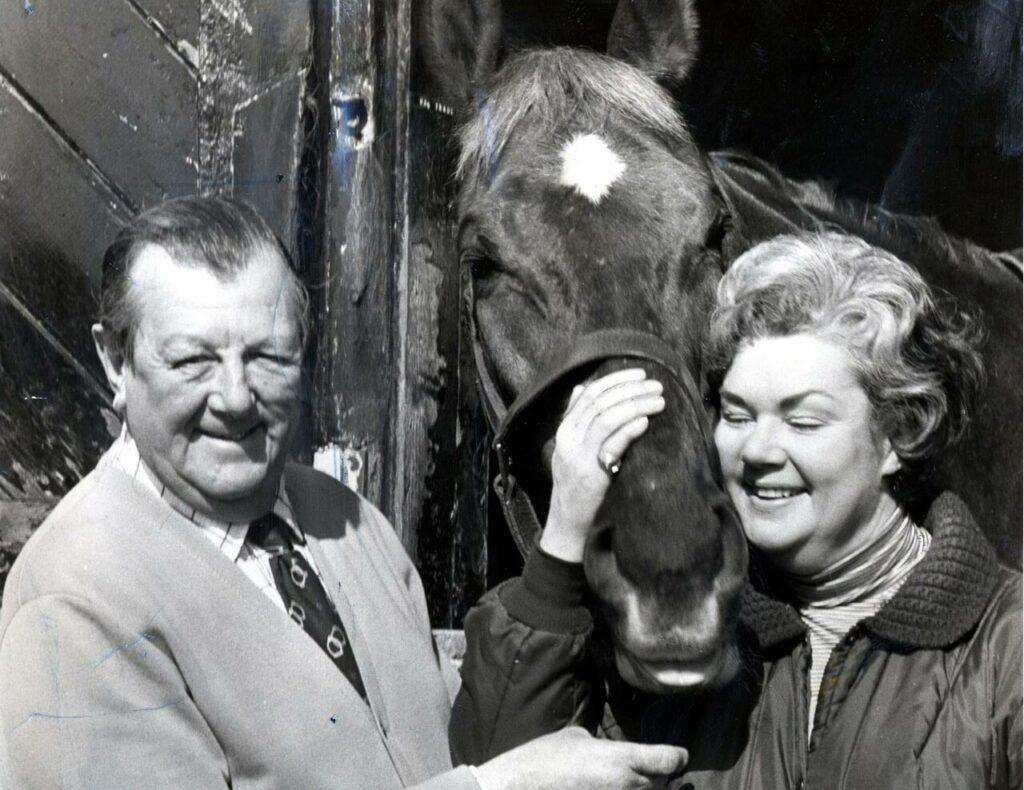
Fred Rimell is one of the most successful Grand National trainers in the history of the event, only Ginger McCain has achieved as many wins in the Grand National.
Many believe that Rimell’s success at the Grand National surpasses that of Ginger McCain as Rimell won each Grand National with a different horse, whereas Ginger McCain’s victories were largely founded on the performances of his Grand National legend Red Rum.
Fred Rimell is one of the few legendary Grand National trainers to have preceded his successful training career with a highly successful career as a jockey. Rimell won the National Hunt racing Champion Jockey title four times between 1939 and 1946. Rimell’s career as a jockey was cut short in 1947 when he suffered two falls that both resulted in a broken neck.
Deprived of his vocation and unable to carry on racing, Rimell turned his attention to training horses. Within four years Fred Rimell, Grand National legend, was back on the comeback trail and won the first of a succession of Champion Trainer titles. Only four years later Fred Rimell achieved his first success on National Hunt racing’s grandest stage in one of the most famous races in Grand National history.
At the final fence of the final lap, frontrunner Devon Loch inexplicably folded to the ground and refused to run any further, leaving the final stretch open for Rimell’s second placed ESB. ESB needed no further prompting and raced ahead to take the Grand National in front of a dumbstruck crowd.
Fred Rimell had to wait another five years for his next Grand National prize. In 1961 Rimell’s horse Nicolaus Silver became the first grey since Grand National legend The Lamb, and only the second in Grand National history, to win the race. Fred Rimell was also awarded his second Champion Trainer title that year.
Two more Grand National victories were to follow in the 1970’s. Gay Trip won the 1971 Grand National and in 1976 Rimell’s Rag Trade produced another moment of Grand National history by outrunning the legendary Red Rum on the flat to take the race. Once again Rimell was honoured with a Champion Trainer award for that season.
Fred Rimell, Grand Nationa legend, earned two more Champion Trainer titles as well as several other prestigious titles including the Welsh National before his death in 1981. Today the Rimell legacy is carried forward by Fred Rimell’s grandson Mark.
Jenny Pitman
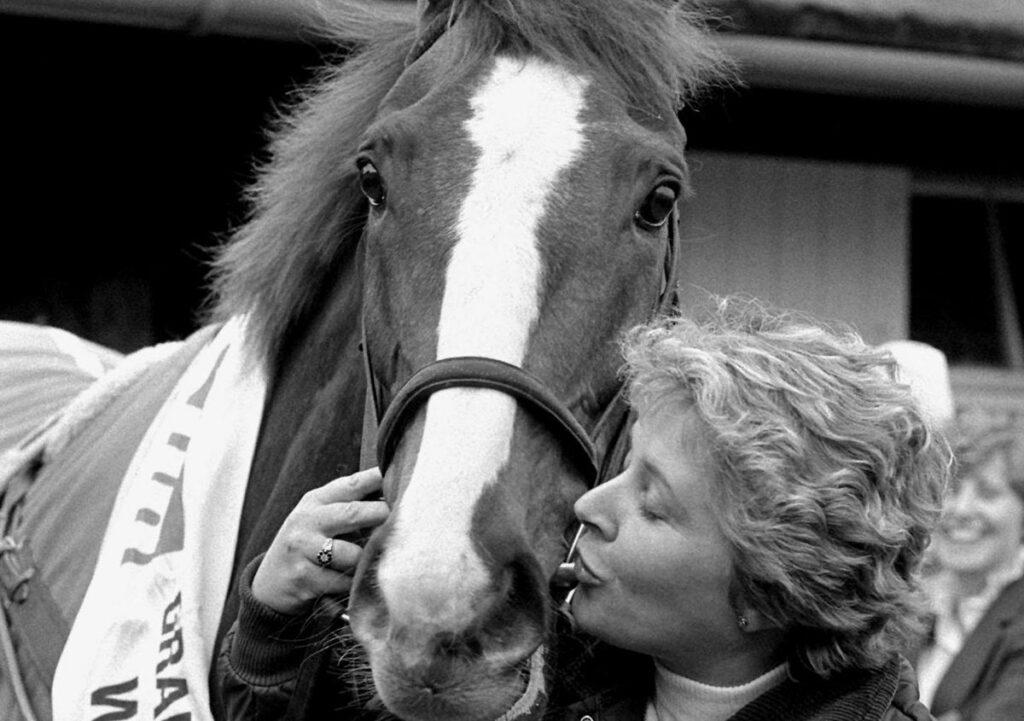
Jenny Pitman occupies a special space amongst these legends. Not only was she the first female trainer to train a Grand National winner, but her two triumphs at the Grand National were achieved against enormous odds.
Jenny Pitman was born to a large family in rural Leicestershire and grew up amongst horses. She left school at the age of 15 to work as a stable girl and pursue her love of horses. Within a few years she met jockey Richard Pitman, and married when she was 19.
In 1975 Jenny Pitman obtained her trainer’s license, and succeeded in training her first winning horse that year – Biretta. Her involvement in the demanding world of National Hunt racing put her marriage under a great deal of strain, and she separated from her husband in 1977.
Jenny Pitman, Grand National legend, soon began notching an impressive string of victories, and rapidly earned herself the respect of the racing community for her success rate and the care and respect with which she treated her horses.
In one famous incident after witnessing jockey John Francome riding one of her horses too hard she stalked to the unsaddling enclosure and floored him with a right hook before kicking him out of her stable.
In 1983 Pitman entered her horse Corbiere into the Grand National. Corbiere started the race at 13/1 odds, and pulled off a stunning victory to make Jenny Pitman the first ever female Grand National winning trainer.
This was not the end of Pitman’s success at the Grand National. In 1993 her horse Esha Ness won the Grand National only to have the victory annulled when nine riders responded to a false start. She did not have to wait long to make up for this loss and in 1995 Royal Athlete defied 40/1 odds to hand Jenny Pitman her second Grand National title.
Jenny Pitman’s success was not limited to the Grand National. The Grand National legend also achieved two Cheltenham Gold Cup wins, and wins at the Irish and Welsh Grand Nationals amongst a host of prestigious titles. She was subsequently awarded an OBE for her contribution to horseracing.
Jenny Pitman, Grand National legend, retired in 1999, handing her training yard over to her son Mark and having beaten a path for female trainers and jockeys in the uncompromising world of National Hunt racing.


